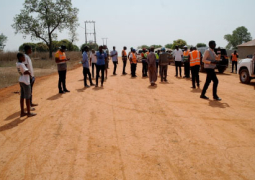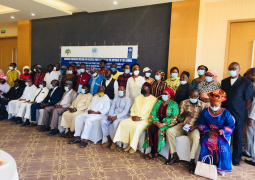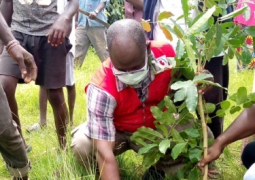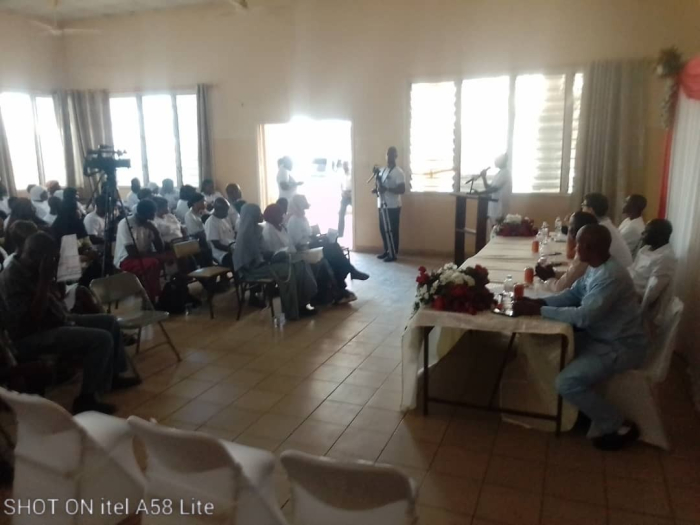
Hemophilia is a rare disorder in which the blood does not clot properly. It affects around 1 in 10,000 people, mostly males and can lead to spontaneous bleeding, joint damage and life-threatening complications if not managed correctly. Around the world, millions remain undiagnosed, untreated, or under treated, often because they live in places where access to care is limited or non-existent.
At the event, Vandy Jayab, Chief Executive Officer (CEO) of Safe Motherhood and Hemophilia Foundation-The Gambia, said the World Hemophilia Day is a day designed to educate that bleeding disorders are not contagious, not a curse, certainly not something to be ashamed of.
"It's a day to advocate- for better health care, for wider access to diagnostic tools, and for policies that put patients first, regardless of where they live," he said.
CEO Jayap maintained that World Hemophilia Day is a day to celebrate the courage of those with hemophilia including the families, who never stop fighting, and the healthcare professionals, who work tirelessly, often with limited resources, to provide and hope.
"Let's also take a moment to recognize the work of the World Federation of Hemophilia, which has been leading the charge in awareness, education, and global outreach since 1963 because of their efforts and the support of local organizations around the world, many people with hemophilia today live longer, fuller lives. But we still have a long way to go." he said.
He disclosed that in 2025, no child should die because they lack access to a simple clotting factor.
"No person should suffer silently without a diagnosis and no one should feel alone because of a condition they were born with."
Njundu Jatta, Clinical Pharmacist at the National Pharmaceutical Services (NPS), described the event as significant.
He described the establishment of the foundation as a step forward in helping the patient of hemophilia. "Now if your child is infected with the disease, you do not have to fear but rush to the hospital," he urged.
Dr. Saifu Gaye, Vice President of the Association, reminded that hemophilia medication is very expensive and that the association depends on foreign donors to have the needed medicine.
He, however, noted that The Gambia government often support the association with a storage facility to safe its medications.
He also spoke about the association’s activities in the past, which he said, includes awareness raising to several public health facilities across the country.
Read Other Articles In National News
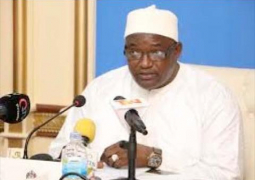
‘Gambia continues to make gains in enrolment at Basic Education Level’
Sep 14, 2021, 1:07 PM
